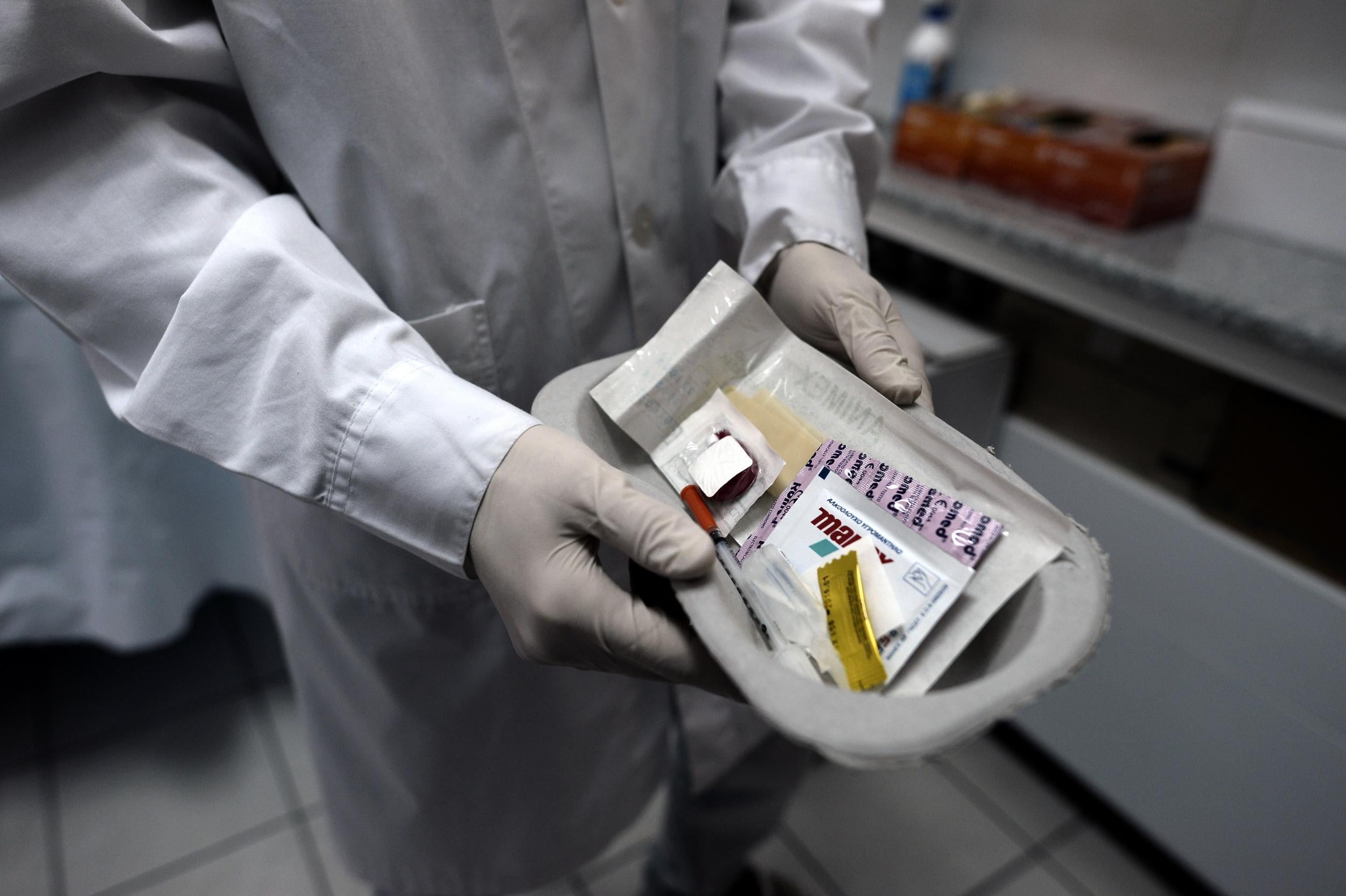Home Office urged to introduce drug consumption rooms ‘to save lives’
MPs accuse government of ‘putting ideology before people’s lives’ by blocking implementation of overdose prevention centres

Your support helps us to tell the story
From reproductive rights to climate change to Big Tech, The Independent is on the ground when the story is developing. Whether it's investigating the financials of Elon Musk's pro-Trump PAC or producing our latest documentary, 'The A Word', which shines a light on the American women fighting for reproductive rights, we know how important it is to parse out the facts from the messaging.
At such a critical moment in US history, we need reporters on the ground. Your donation allows us to keep sending journalists to speak to both sides of the story.
The Independent is trusted by Americans across the entire political spectrum. And unlike many other quality news outlets, we choose not to lock Americans out of our reporting and analysis with paywalls. We believe quality journalism should be available to everyone, paid for by those who can afford it.
Your support makes all the difference.The Home Office has been urged to introduce drug consumption rooms amid claims ministers are “putting ideology before people’s lives” by blocking their implementation.
Thirteen cross-party MPs and peers, plus seven police and crime commissioners, have sent a letter to the home secretary, Sajid Javid, calling on him to end the policy of blocking the implementation of drug consumption rooms – sometimes referred to as overdose prevention centres (OPCs).
They said the facilities, which provide people with drug addiction a safe place to consume their supply with sterilised equipment, medical help and advice, have an international track record of reducing overdose deaths, and bringing more users into contact with treatment services.
The Home Office has repeatedly insisted OPCs cannot be implemented in the UK due to fears that they condone drug use.
The letter, coordinated by the All-Party Parliamentary Group for Drug Policy Reform, said this resistance was “complacent and dangerous”, noting that there are more than 3,500 drug-related deaths in the UK each year – more than twice the number of people killed in road accidents.
Figures last week revealed Scotland saw more drug-related deaths than any other European Union country in 2018, after a 27 per cent increase in a single year brought the total to its highest level since records began 23 years ago.
The APPG said OPCs had been established in many countries with “good public health results” and an “absence of the feared negative consequences”.
“We and many of our colleagues have been assessing their value as part of local strategies to reduce drug-related deaths and infections (primarily HIV and hepatitis), as well as incidences of public disorder and needle litter,” the MPs wrote.
“We are supportive of areas that wish to proceed with their implementation. We therefore call on the government to allow the relevant local authorities the discretion to proceed with locally developed, closely evaluated pilots.”
One of the MPs, Conservative Crispin Blunt, said that in the face of a “crisis of drug overdose deaths”, ministers could not afford to reject initiatives that would help bring the death rate down.
“Policymakers must urgently escape the simplicity of ‘drugs are bad, they are banned’ and engage in evidence-based policy and the complexities about how to reduce crime and save lives,” he added.
Baroness Molly Meacher said responsible local authorities desperate to try new approaches were being prevented by a Home Office “putting ideology before people’s lives”.
The Green Party’s Caroline Lucas, Liberal Democrat Tom Brake, the SNP’s Ronnie Cowan and peers including Baroness Neuberger and Lord Adebowale also signed the letter.
A Home Office spokesperson said: “Any death related to drug misuse is a tragedy. Our drug strategy is bringing together police, health, community and global partners to tackle the illicit drug trade, protect the most vulnerable and help those with a drug dependency to recover.
“The causes of drug misuse are complex and need a range of policy responses and many of the powers to deal with drug dependency such as healthcare, housing and criminal justice are devolved in Scotland.
“The UK government has been clear that there is no legal framework for the provision of drug consumption rooms and there are no plans to introduce them.”
Join our commenting forum
Join thought-provoking conversations, follow other Independent readers and see their replies
Comments